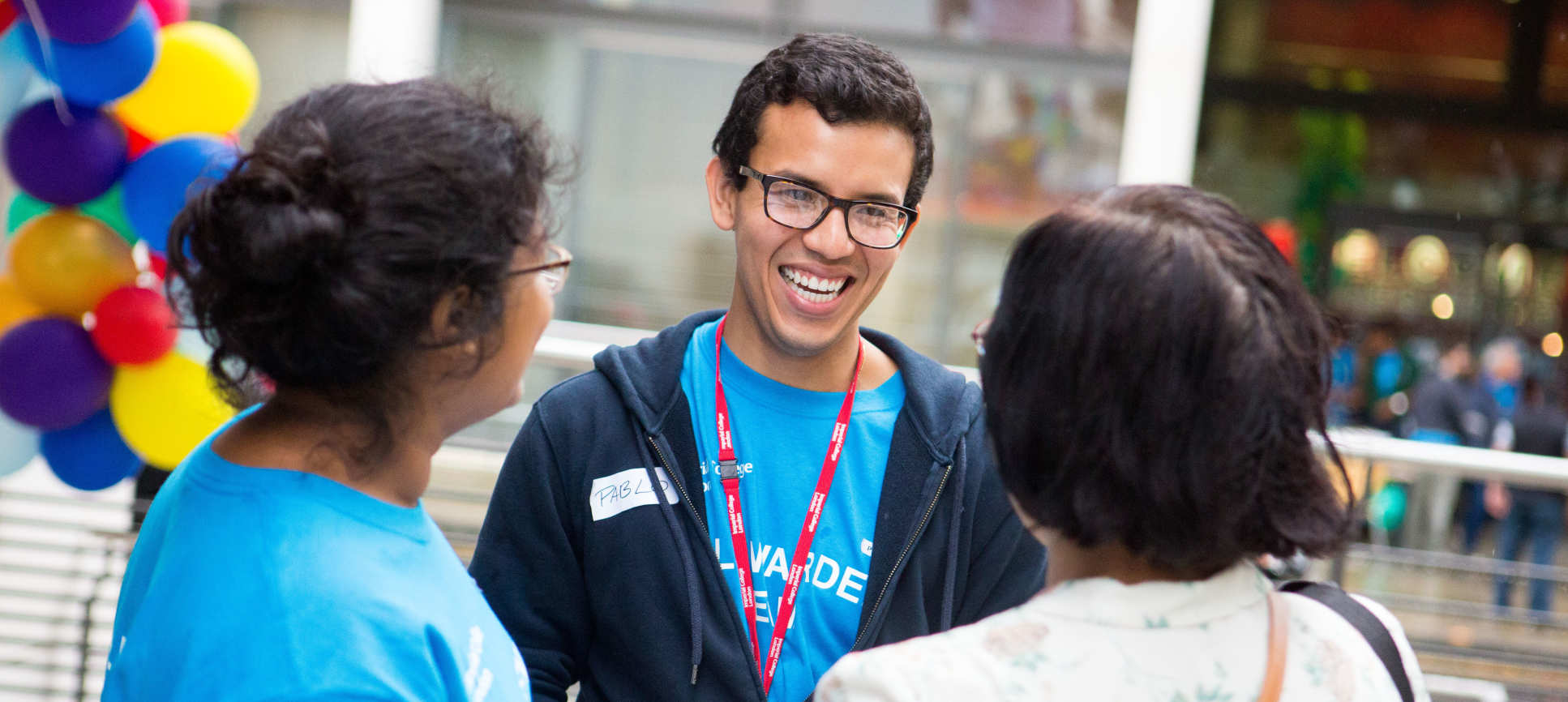
At university you will learn a lot, not just about your subject, but about yourself and about life. You will develop new skills and experience new things every day. Adapting to university life can be challenging, but preparing for the new experiences ahead will help you to succeed.
So, how will university life be different?
Showcase area
- 60% is a good grade
- Online learning will be common
- You will be using library resources a lot
- You will have multiple assignments at the same time
- You will be responsible for your own study and your success
- You will be expected to think critically
- You will decide when and where to study
- You will be cooking for yourself and others
- You will be taught in lots of different ways
- You will meet people from all over the world
At school you may have regularly scored over 70%, 80%, even 90% in a test or an assignment. At university, the rules change. For most students the pass mark is 40% and a first class degree 70% or over. See the Understanding Grades section for more detailed information on grades.
Online activity is popular at Imperial. Much of your learning will take place via Blackboard (the College’s Virtual Learning Environment), Microsoft Teams and other online platforms. You will regularly use the library’s online catalogue, specialist software for statistics, research or assessment, email for communicating with tutors and peers and many other types of online tool.
As well as being a potential study space, the library has a vast array of books, e-books and e-learning resources to help you prepare for classes and your own studying. You will soon be very familiar with what Library Services can offer you!
Writing an essay, preparing a presentation for tutorial, conducting a group project, preparing a lab book. These may well be things that you will be working on at the same time. The good news is that you usually have longer to work on them. But don’t leave it to the last minute, manage your time and your workload effectively.
At university you have a lot more responsibility for your own study. You will be expected to work independently, read around your subject, prepare for tutorials, visit the library and manage your own time. Don’t worry, there’s support from tutors and lots of advice available on this website but your success will be determined by you.
Rather than just accepting and learning everything that you're taught, you will be expected to question, challenge and see gaps in the material to develop your own arguments, theories and ideas.
Visiting the library at 21.00, studying until 02.00, working in a coffee shop or in your department – these are all options at university. Planning your time and knowing when and where you work the best will help you to achieve more.
Most students have only ever lived at home with relatives before coming to university, so not everyone has perfected their culinary skills. Ask friends and family for easy, cheap and healthy recipes that you will be able to cook for yourself and your housemates.
Rather than "classes", teaching will be delivered in various ways – lectures, tutorials, practical classes and online. Lecture theatres are a lot larger than classrooms at school and many can hold well over 100 people. Tutorials are smaller discussion groups where you can really get to grips with a particular topic.
With students from more than 125 countries, you will meet people from all over the world with different cultures, backgrounds and interests. Also, as you will be living and studying in London, your neighbourhood may suddenly get a whole lot bigger and more diverse.
